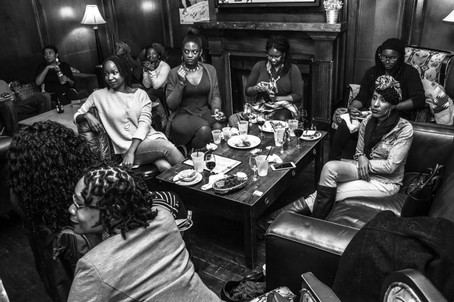The front row is the seat no one wants to occupy at a funeral. It symbolizes the relationship of the living to the deceased. It is full of mourning, whimpers, tears and grief. Millennials, however, are on the front row of the funeral of gender-basedministries. My research showswomen’sand men's ministries as twoof the least desirable ministries in the church.
Ethnographic research as a black millennial in conversation with others,as well as cultural observations, reveal tworeasonsgender ministries are less viable with millennials: gender identity concerns and pressure to conform to gender roles. Before you launch intoa defense of these ministries, answer onequestion: Wherewould Janet Mockgo? And is the church preparedto allow millennials to participate based upon their self-identification? If not, isthere a process or space for this type of questioning? The other concern is the pressure of not being sufficiently woman ormanenough (or too womanly or manly)for the ministry members. Are your ministries cisgender, meaning they correspond to the gender assigned at birth, or are people who identify as transgender welcome?Is there a possibility for study from various lenses? Is there space for womanist study in either ministry?
The misconception is that the primaryquestion is whether the ministry is exciting for millennials.However,the most poignant questionsarewhether these ministries can live among millennialsand if it helps millennials to live. The answer, based on the current structure and goals of traditional church,is “no.”Millennials operate primarily as if these ministries are dead,but the church still functions as if it is a viable ministry as longas there is at least one generation participatingminimally. It is a bit sickening to watch the church dance with the dead and engage ministries as if they are living and breathing. Just because the body is before you, doesn’t mean it’s living. We are all inthe same church aselders, millennials and youngermembers,but we seem to have received different memos. Millennials believe they’re at afuneral, leaders believe they areat acelebration and realistic leaders believe they are providing palliative care.
Most people, after hearing my research,want to immediately troubleshoot revival methods. While resurrection is possible and natural for the church to consider,I’mnot sure it’s necessary.Ifthe plan for resurrection is creating new events with old thought patterns, that will place the ministries on life support at best. Ifthe goal is true resurrection -erecting something that was once living with shared power and authority -youare headed in the right direction.The problems with gender ministries have less to do with cliques, attitudes and generational belief and everything to do with sexuality, self-identification and gender fluidity.
Millennials participating in gender ministries will demand complex conversations and an openness so that healthy engagement can exist. Most churches are hesitant or resistant to the simplest conversations pertainingto sex. Although there are many pastors who demean and condemn from the pulpit, few have been open to conversations that allow growth in both head and heart. This is the path leading tohealthy, engaging, explorative and edifying ministries. Whatever your perspective, there are questions that should be answered before you consider sowing either time or talent into gender ministries.

